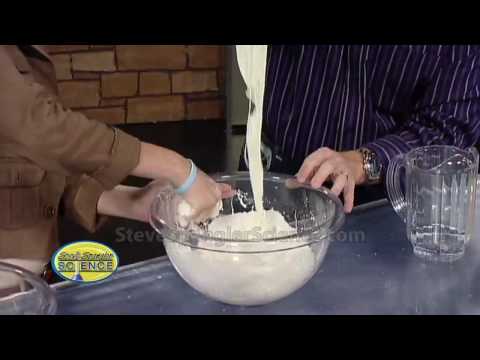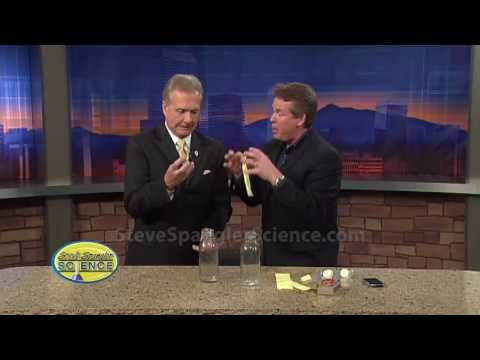Superheated Steam – Cool Science Experiment
We usually think of water as a substance used to put out fires… but what happens when water turns to steam and that steam gets superheated? Watch in amazement as the steam created in the experiment is used to create – not extinguish – fire!
About Steve Spangler?
Steve Spangler is a celebrity teacher, science toy designer, speaker, author and an Emmy award-winning television personality. Spangler is probably best known for his Mentos and Diet Coke geyser experiment that went viral in. Spangler is the founder of www.SteveSpanglerScience.com, a Denver-based company specializing in the creation of science toys, classroom science demonstrations, teacher resources and home for Spangler’s popular science experiment archive and video collection. Spangler is a frequent guest on the Ellen DeGeneres Show and Denver 9 News where he takes classroom science experiments to the extreme. For teachers, parents or DIY Science ideas ? check out other sources of learning:
Join the Science Club and check out other cool science experiments at – http://www.SteveSpanglerScience.com
Sign up to receive a FREE Experiment of the Week- http://www.stevespanglerscience.com/experiment-of-the-week
Attend a Spangler Hands-on Science Workshop for Teachers – http://www.stevespanglerscience.com/training
Watch Steve on Local and National Media Appearances on YouTube at: https://www.youtube.com/user/SpanglerScienceTV





sleep killer
Brule's rules.
1:47
actually, steam is what you see, it is a lot of very tiny liquid water drops, but vaporized water is the gas form you can't see
Jeff
"They know it's Monday"
Makes me so laugh 😀
It doesn't matter. The only reason that they light a match is to show that you can superheat steam to high temperatures. Even if the match was lit by touching the copper, it still stands that water can be superheated.
I actually burst into laughter reading this. Had to look up and confirm the character is indeed named Steve.
@Joachim Van Renterghem?That's not really true, scientists use whatever temperature scale is most appropriate for the situation. Often this is kelvin, but fahrenheit is also used on occasion. In most situations temperature scales that the average person has never heard of are used, or even a scale made up on the spot for the situation.
?
??
Perfect!, I exactly wanted to see a practical experiment like this, coz it answers all my doubts & proves my teachers are wrong.